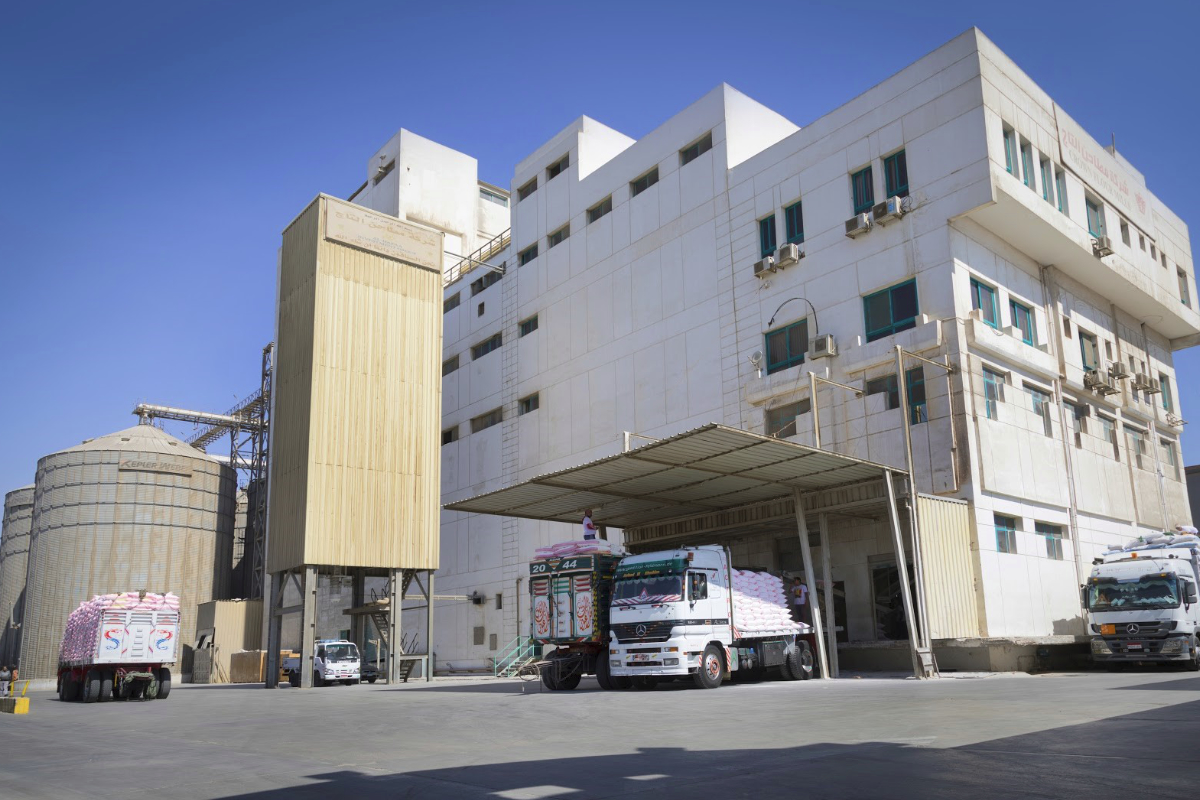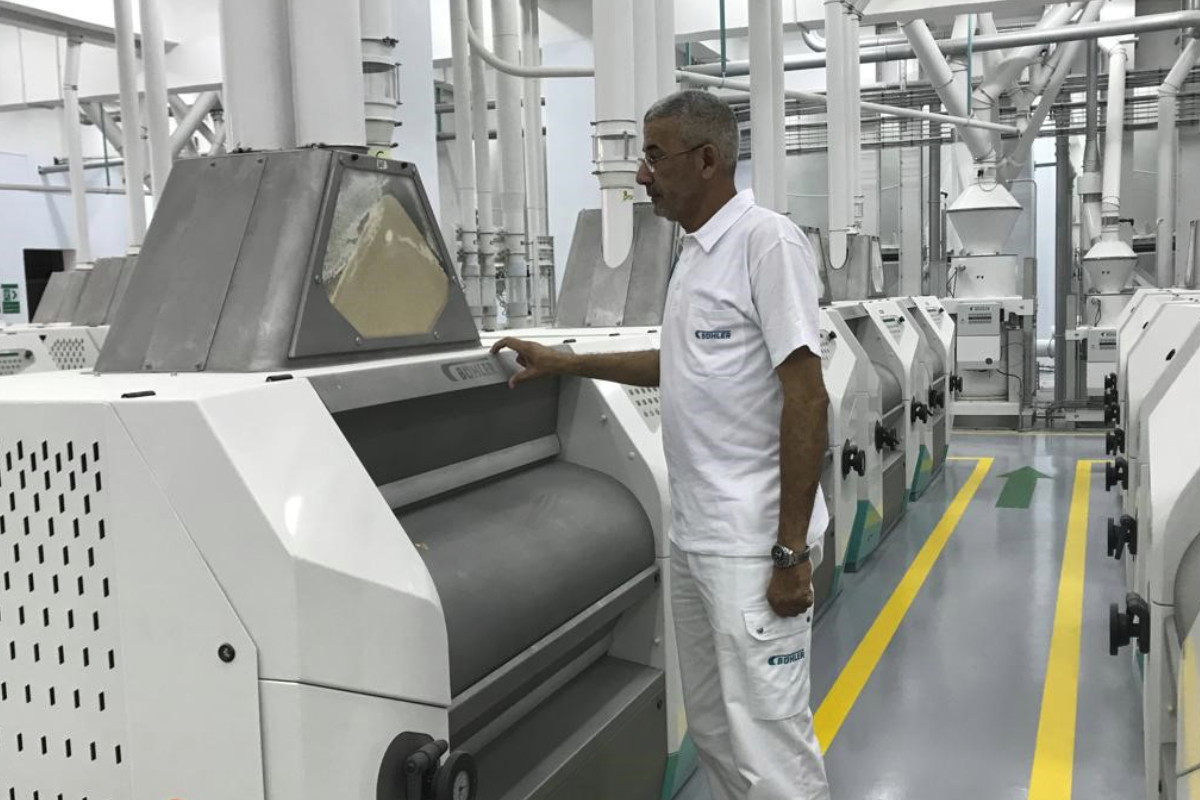CAIRO, EGYPT — With demand for its products growing significantly in Egypt, the Al-Hazaa Investment Group discovered just one flour mill wasn’t enough to meet the needs of its customers.
In 2016, the company started work on Al-Tajj mill 2, located in the same industrial area in 6th of October City, Egypt, as its Al-Tajj mill 1. This July, the second mill, which cost $35 million, started operations.
“The Egyptian market has shown a great increase in demand in addition to the increased needs of customers for our products,” said Khalid Sharif Al-Hazaa, general manager. “They trust our products and their quality, therefore we decided to take that decision.”
The new mill has a flour capacity of 460 tonnes per day, bringing total flour production capacity of the two mills to 920 tpd with an extraction rate of 72%.

Mill 2 is 20,000 square meters and seven stories tall. Grain storage capacity is 90,000 tonnes and wheat flour storage capacity is 3,000 tonnes. In building the mill, the company took into consideration the possibility of future expansion.
Al-Tajj mills import wheat directly from large suppliers to ensure high quality. This typically includes the United States, Canada, Australia and Russia.
Three main suppliers installed the equipment for the mill, ensuring the latest technology, highest quality and efficiency, Khalid Al-Hazaa said.
Silos Cordoba, based in Cordoba, Spain, supplied the silos while Uzwil, Switzerland-based Bühler supplied the milling equipment. Brabender, based in Duisburg, Germany, supplied the laboratory equipment and quality assurance.

The milling process is fully automatic with wheat received in bulk and stored in silos. It is cleaned in the newest Bühler machinery, including the Sortex machine, which uses optical sorting to achieve top hygiene levels.
Milling, sieving and sifting take place through Bühler rolls and plansifters. Product then passes through the impact machine MJZG to destroy insects and insect eggs, making the flour more suitable for storage.
The finished flour is stored in concrete silos. Flour is delivered to customers either in bulk or packaged in 50-kg polypropylene bags that are produced by one of Al-Hazaa Investment Group’s companies in Jordan.
Flour is distributed under different brand names, including Dream flour, Motamayez flour and Alasfar flour. Flour is delivered to customers in the entire Egyptian market such as Rich Bake and Bisco Misr (Kellogg’s). About 28% of the company’s production is bran and is delivered to feed mills in Egypt.

The Al-Tajj mills have a strong relationship with other partners in the industry, including wheat providers such as Cargill and Louis Dreyfus and more, Khalid Al-Hazaa said. It also has strong relationships with equipment suppliers like Bühler AG and with customers in the Middle East either in the Egyptian market or through exporting to the neighboring countries.
Omar Al-Hazaa is the mill manager of Al-Tajj 2 and technical supervision is managed by miller Ibrahim Azmy, who has more than 30 years of experience working with Egypt’s government mills and with Bühler.
Amman, Jordan-based Al-Hazaa Investment Group operates 10 milling facilities in four countries and has a total daily flour production capacity of more than 4,000 tonnes. Along with flour milling, its businesses include grain storage, plastics, instant noodles production and grain milling across the Middle East. The company has operations in Iraq, Jordan, United Arab Emirates, Egypt and Cyprus.




